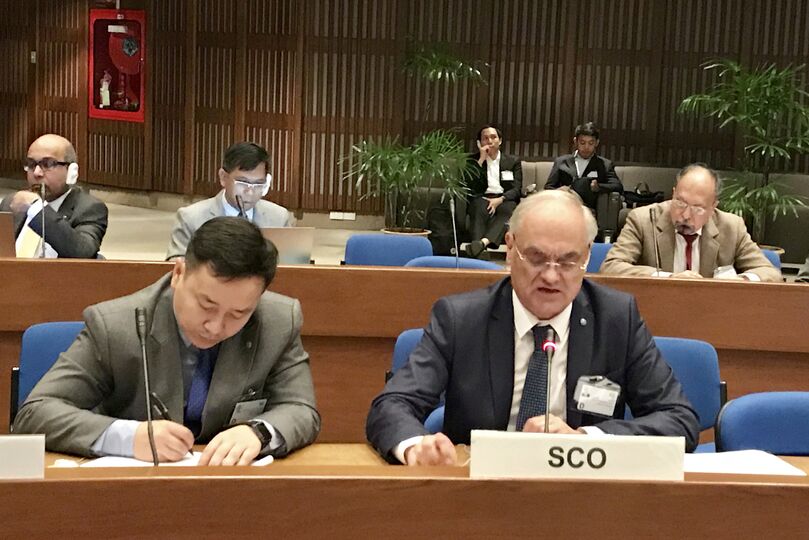A delegation of the SCO Secretariat led by SCO Deputy Secretary-General Vladimir Potapenko took part in the fifth session of the ESCAP Committee on Transport held at the UN Conference Centre in Bangkok on 19-21 November 2018.
The session was also attended by high-ranking representatives from the ESCAP states, as well as delegations from international, intergovernmental and non-governmental organisations.
The participants used this international venue to hold constructive discussions on current transport policies and initiatives, the continued development of transport infrastructure, road safety and the creation of conditions for implementing projects promoting the development of international transport corridors.
On the morning of 20 November 2018, SCO Deputy Secretary-General Vladimir Potapenko delivered a report at the panel session on developments in transport infrastructure connectivity (2014-2018) in the era of the 2030 Development Agenda. Mr Potapenko expressed appreciation for ESCAP's contribution, including its Committee on Transport, to the implementation of phase I (2017-2021) of the Regional Action Programme for Sustainable Transport Connectivity in Asia and the Pacific. He also pointed out that the SCO was interested in maintaining cooperation with ESCAP in this sphere.
"Transport cooperation is a crucial element, primarily for opening up new transit and transportation opportunities. The new multilateral road transport licensing system for moving goods by road from the Pacific Ocean (Lianyungang, China) to the Baltic Sea (St Petersburg, Russia) based on the SCO Agreement is a unique project. The main feature of this agreement is that it is open for accession by non-members, which has attracted the attention of many countries in Eastern Europe, the Middle East and Southeast Asia," Vladimir Potapenko said.
Following panel discussions, the participants analysed hindrances to the development of the transport system and coordinated recommendations on the development of the transportation and logistics infrastructure with due regard for the implementation of the 2030 Agenda for Sustainable Development.
ESCAP is a partner organisation of the SCO and one of the largest UN regional commissions. It was established to help overcome some of the greatest socioeconomic challenges in the Asia Pacific region.
The SCO Secretariat and ESCAP signed a memorandum of understanding in 2005.
